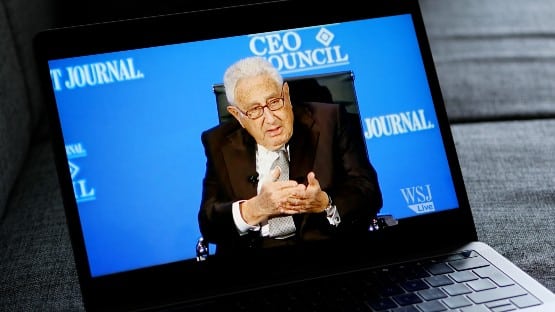
At the ripe age of 100, Henry Kissinger remains an icon of the governing class and the foreign policy establishment. Amazingly, his advice is still sought, he writes lucidly on foreign affairs, and he commands attention wherever he goes.
Unfortunately, his legacy is tarnished by malevolent intentions and costly outcomes, for example: conspiring with the Chilean military to oust President Salvador Allende, leading to the rise of General Augusto Pinochet; supporting CIA involvement in Operation Condor, a secret campaign founded by Pinochet to keep right-wing dictators in power in Latin America and assassinate or otherwise remove leftist challengers; supporting the bloody Indonesian intervention in East Timor; arming what was then West Pakistan to quash East Pakistan (which later became Bangladesh), in a bloodbath that Kissinger and Nixon knew about and ignored; orchestrating the October Surprise to delay peace talks on Vietnam until after the 1968 elections and Nixon’s victory; then secretly undermining the South Vietnamese government in order to ensure a safe US withdrawal; authorizing the bombing of villages in Cambodia and Vietnam that killed tens of thousands of civilians; opposing sanctions on South Africa in the apartheid era.
If the U.S. were a party to the International Criminal Court, these involvements would have put Kissinger in the dock.
So, out of civility, I wish Mr. Kissinger a happy birthday. But his career only shows how shameless foreign policy realism can be and how paper-thin is the notion of great statesmanship.
Mel Gurtov, syndicated by PeaceVoice, is Professor Emeritus of Political Science at Portland State University and blogs at In the Human Interest.










